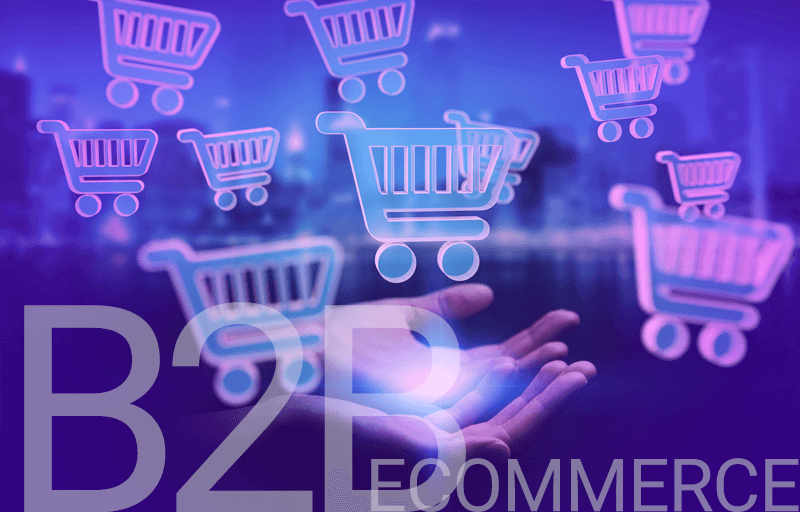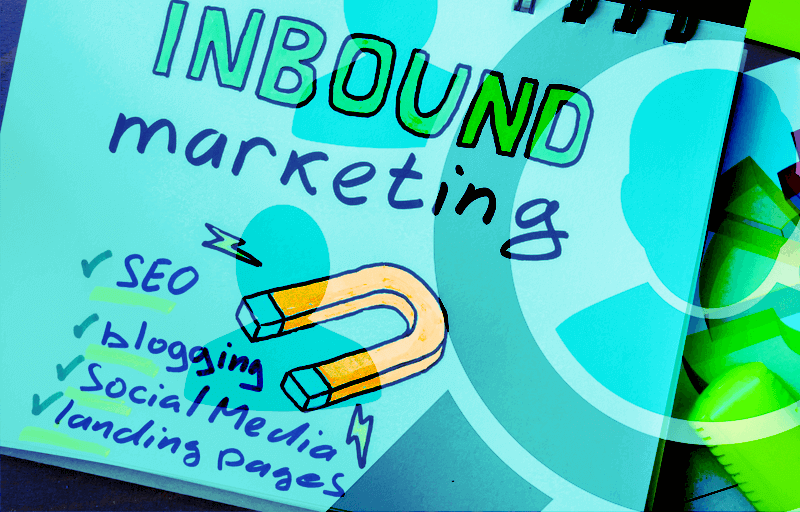The world of B2B ecommerce has gained tremendous traction this past year, and with good reason. Many businesses have found it to be a great way for them to liberate their sales reps from having to manage all customer interactions and make it easier for clients to purchase smaller items anytime they need at any time.
But how much do we really know about the landscape of business-to-business ecommerce? If you’re evaluating your own digital commerce strategy right now, understanding the nuances of this field will help you decide whether utilizing an online store would be fruitful or not.
Fact is, there are a lot of misconceptions about B2B ecommerce. The digital revolution has made ecommerce a powerful channel for retail businesses of all kinds, and harnessing the plethora of new technologies is quickly becoming a necessity for those companies that want to stay ahead of the curve.
To help sort out the confusion when it comes to B2B ecommerce, in this post we’ve listed some of the most common statements made about ecommerce. And we’ve answered the question about which statements are correct. Let’s dive into it!
B2B Ecommerce provides products and services that help B2B businesses stay ahead of the curve.
Answer – Correct!
Many different industries fall into the B2B realm. Some provide goods and materials that businesses use every day in their operations. This type of physical product is where B2B commerce got its start – selling in bulk to help businesses save money on things like packaging, paper, and supplies.
But B2B commerce has rapidly become a leading player in the technology and IT infrastructure markets. Just consider the amount of tech required to run a large-scale business these days.
It’s more than just cash registers and computers. Software solutions and complex integrated systems are some of the biggest products sold by B2B businesses today, as are the services required to install and maintain those systems.
B2B Ecommerce sales tactics differ from B2C sales strategies.
Answer – Correct!
Business-to-consumer sales occur when a business sells its products or services directly to consumers. When you’re shopping online for something as an individual consumer, you are motivated by a few different factors: need and want.
B2C sales are very much driven by emotion and impulse. You see an advertisement online for a product that sparks your interest, and you head off to buy that product.
B2B sales, however, come from a much more analytical place. B2B buyers are not just shopping for themselves on impulse. Typically, they must answer to other decision-makers within the company. And their motivations are things like profit margins, financial impact, and overall benefit to the company.
B2B customers are looking for specific solutions to a problem. And they have no problem shopping around for the answer to that problem, investigating competitor companies and products in a very measured and analytical way.
For this reason, the B2B sales funnel is much longer, and it takes more effort from B2B businesses to nurture a lead into a sale.
Many different types of technology can help B2B marketers and businesses win customers.
Answer – Correct!
In today’s ecommerce landscape, B2B businesses sell a lot of technology solutions to their customers. But they also benefit from using technology themselves.
Digital marketing has become one of the best ways for companies to source valuable leads and follow up with those prospects in real time. Technology also provides a way for businesses to automate marketing campaigns, organize customer data, and measure their results.
Remember that the best marketing tools are those that easily integrate with other software solutions, or provide multiple services from a single hub. Here are a few types of technology solutions that B2B ecommerce marketers can use to get better results from their efforts:
Customer Relationship Manager (CRM)
There are numerous programs designed to help businesses manage, organize, and automate their customer relationships. A CRM provides an integrated platform through which businesses can manage the way they connect to customers from across multiple platforms.
A CRM combines sales, marketing, and other activities into one easy-to-use system that helps businesses automate tasks and see a big-picture view of their results. In fact, 91% of B2B businesses with ten or more employees use a CRM to boost their customer outreach results.
Email Automation
One of the most effective tools for B2B businesses is email marketing. When it comes to nurturing leads, both warm and cold, email marketing remains top of the list in terms of effectiveness and cost-efficiency (just check out the average ROI of 36:1).
B2B businesses can use an email automation program to help them optimize and automate an email marketing strategy. Automation ensures that the content goes out consistently and with very little effort from the business itself.
Social Media Automation
Social media is one of the best ways for B2C companies to reach their audience, but it has great benefits for B2B businesses as well. Platforms like Twitter and Facebook are still extremely popular, but when it comes to B2B sales, LinkedIn is the cream of the social media crop.
94% of B2B marketers use LinkedIn in their content marketing strategy, and 66% consider it their most valuable source for social media marketing. LinkedIn is 277% more effective for lead generation when compared to Twitter and Facebook, and advertisements on the platform convert at a 3X higher rate than other social media platforms. A social media automation tool can help B2B businesses make the most of their marketing strategy.
Website and Landing Page Automation
Some software solutions are targeted at helping businesses optimize their websites and landing pages, which are both powerful resources for B2B companies. These programs can tailor webpages to a business’s specific needs, location, traffic sources, and other parameters for the best result. SEO optimization is also a key strategy, helping businesses attract organic traffic from the right audience.
B2B Ecommerce is rapidly changing and requires forward-thinking strategies.
Answer – Correct!
B2B Ecommerce and marketing are both undergoing a rapid transformation due to the increase in technology solutions. Automation, AI, and machine learning programs are providing new and improved ways for businesses to gather and organize data about their customer interactions, sales and marketing efforts, and overall results.
With so many innovations happening all at once, B2B businesses must employ new and improved strategies if they want to stay ahead of the curve. Remaining competitive in any retail environment, whether physical brick-and-mortar or ecommerce, requires investing in the smartest solutions to move the business forward.
Final Thoughts: Which Of These Statements About B2B Ecommerce Is Correct
B2B Ecommerce is challenging for many reasons. Businesses looking to market themselves successfully must reach out to new leads and retain current customers, inform their audience of what they’re offering, and how their products or services will benefit that audience. And they must remain authentic and trustworthy throughout the process.
If you didn’t notice, every statement we listed here about B2B Ecommerce is correct. That’s because it’s more important to focus on what works rather than what doesn’t. B2B businesses will benefit from a strategy that combines technology and outreach. Content marketing, social media advertising, email marketing, and other strategies should work together for the best chance at success.
All in all, B2B ecommerce is here to stay and with it comes a wealth of potential advantages for businesses. It is obviously essential that companies take the steps necessary to integrate this technology into their existing processes.
By doing so, they will not only benefit from cost savings associated with more efficient online sales operations but also from increased customer satisfaction due to the added convenience an online store brings.
In the end, companies which make use of B2B ecommerce capabilities are sure to derive great value from them – as long as they keep up with industry trends and embrace changes in order to optimize their digital environment.
So whether you’re looking for greater visibility, better access control or complete rebranding of your entire business model – successful B2B ecommerce implementation awaits!

